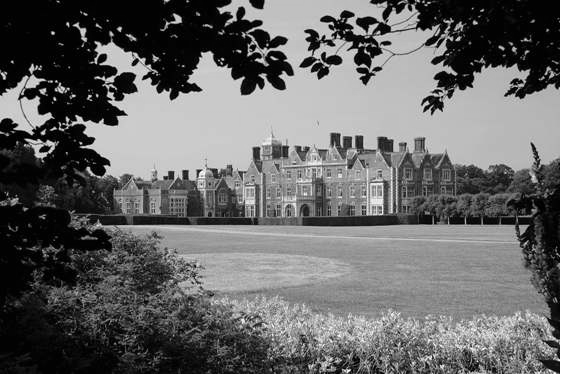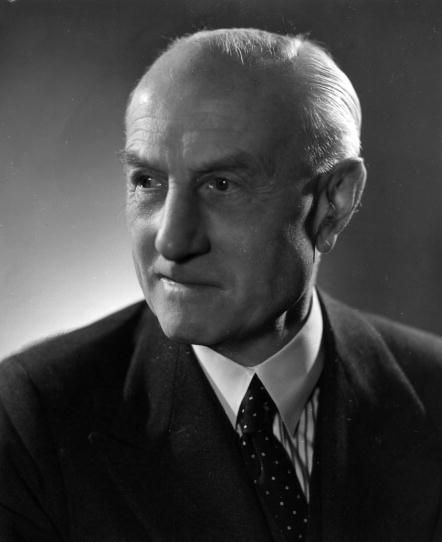Chapter 106, Sandringham, 14 December 1940
The King and Prime Minister enjoyed a gentle stroll through the pleasant fields. It was a bright morning, crisp, virtually windless with the sky a light and rich blue. The King, relaxed after recent troubles, was relishing the walk. For Halifax too, about to return to Garrowby for Christmas, it had been a pleasant enough use of the hour.
“Bad news about L-lothian, Edward.”
“Indeed, Your Majesty. May I dare to pwesume that you have sent the letter of condolence to his family?”
“Yes, Edward, all of that. Lascelles and I finished it yesterday. Are we holding a memorial service here?”
“Pwobably. I need to finalise the details with the family.”
“I shall attend, of course. He was a g-good man.”
Halifax, whose background and political opinion was particularly close to Lothian’s, nodded sadly at the King’s obvious sorrow at the death of the Ambassador the United States. Lothian, deeply religious, had refused treatment that could have saved him and so had died unnecessarily. Reasonably popular with the Americans, he had served his country well and Halifax dreaded finding a replacement. Of course the King, with his uncanny knack of highlighting Halifax’s problems, spotted the issue.
“Do you have a replacement nominated, Edward?” The King lit a cigarette, as Halifax made a shrug that was almost gallic in its resignation.
“A pwoblem, Sir. The Beaver has alweady made a whining case for Winston Churchill. He takes the view that Winston, or, modestly, he himself, are the only men who can bwing Amewica and the Empire together.”
“Winston!” The King almost barked the word. Halifax’s reference to Beaverbrook had raised his ire, the mention of Churchill, the man whose opposition to the peace with Germany had caused so much pain and grief for Halifax, his close friend, only added to it. “He is not,” the King said loftily, as if educating a lesser mortal on something only he knew “a gentleman.”
Halifax smiled thinly, recalling Butler’s reaction to the suggestion. “Agweed, Sir. Cadogan has suggested Vansittart or, in a moment of immodesty, himself. But I am not sure that the Washington Embassy is the place for a caweer diplomat.”
The King looked confused. “Then whom would you send?”
Halifax ran through the deliberations he had had with his foreign office advisors. “I think it needs to be a political appointee; if anything it will help the unfortunate soul in dealing with their confusing political system.” He paused, with the King, at a fence with a small access gate. The King offered his First Minister a hip flask, which he gratefully sipped from. “I think also that Woosevelt panders too much to public opinion, but perhaps he has to. A candidate with political experience will able to wespond to this.”
“Have the A-americans indicated a preference?” The King was, as ever when dealing with matters of state, earnest, keen to be of assistance.
Halifax chuckled softly. “That, Sir, would wequire them to make a decision.” He paused, realising that his remark was unfair. “The Pwesident has rightly left it to us. But, given that Roosevelt, like ourselves, values an individual’s backgwound as well as mewits it must be an impeccable candidate. I believe I have thought of some candidates. Baron Cecil, son of the Marquess of Salisbury, Lord Woolton, and Victor Cazalet. Eden suggested Lord Moyne.”
The King thought hard. Cecil was a known imperialist whilst Cazalet had managed to support Franco’s Nationalists in Spain whilst opposing appeasement at home. Moyne was an odd choice, given his friendship with Churchill. But Woolton was an interesting character, a businessman turned politician. He raised an eyebrow at Halifax.
“W-woolton, Edward. I think Woolton would be a good ambassador.”
“My favoured candidate. I feel his business cwedentials and ease with the public would serve him well over there. Though I envy him not at his going out there at all.”
The two strolled on further, passing a group of estate workers who looked on as King and Prime Minister wandered happily through the grounds leading up to York Cottage. The King paused to enjoy the view.
“You remember Edward, how my brother viewed this place?”
Halifax remembered that well. Edward VIII, on the death of his father, had swept through Sandringham ending many of the traditions and rituals established by his grandfather and father. It had been an alarming time, as Halifax, at the time the Lord Privy Seal, remembered vividly. Halifax, staunchly “a friend of Bertie’s” had played an understated, supporting role to the then Duke of York. It was one of the key moments in their friendship.
“Indeed, Sir. If I may venture, the wiser party pwevailed in that matter.”
The King smiled at the compliment. “I am t-thinking, Edward, of what to say in my address to the nation. Elizabeth has suggested that we work together on the words.”
Halifax raised his head, and took in the crisp morning air. “Sire, your Chwistmas addwess is your pwovince, of course. But I venture that you will dwive the Dominions to work together, and celebwate our deliverance fwom a dreadful war.”
“Yes, Edward, I like that idea. Urge the Commonwealth to work as a family.”
“Perhaps, Sir, the family analogy is apt. All families have fallings out, but they always come together in the end.”
The King smiled, repeating the line. “You k-know, Edward, perhaps you should make the address,” he said teasingly.
“Sir, I loathe the wireless and everything associated with it. I lack Your Majesty’s obvious ability to engage with the populace.”
“You flatter, Edward. Winston used to flatter. After the coronation he p-persisted, tried to suggest that he didn’t support my brother and his, his…”
“The Duke and Duchess of Windsor,” Halifax interrupted, lest the King embarrass himself with commenting so openly on the still bitter matter of Wallis Simpson.
“You know that the Duke has suggested himself for Washington.”
“That will be dealt with, Sir. West assured that Your Majesty’s wepresentative in Washington will not be he.”
“Good. Imagine that woman in the White House!” The King laughed at the gloomy gest. The two men sat together on a small wooden bench, a lovely view of Sandringham before them. “It has been quite a year, Edward.”
“Indeed, Sir. Yes, nineteen forty has been memowable.”
“Oh yes, Edward. All this,” the King waved towards the fine house in the distance, “threatened because of far-off events. What will next year bring, I wonder?”
Silently, the two men walked back towards the large house.
[Game Effect] – A gentle update, summing up some of the news and looking further at the complex friendship between Sovereign and PM.
Lord Lothian did indeed die in late 1940, his replacement, ironically Halifax. For reasons various Churchill conspired to offer Eden the Foreign Office which, despite Halifax’s pleadings not to go, led to his ‘banishment’ to the US. There, lacking Lothian’s easy manners and relying on poor advice from his embassy team, he initially failed to make a good impact. Later, thanks to assistance from Lady Halifax, he was ‘de-iced’ somewhat, though with the wartime relationship between the UK and US so close (if not always harmonious) he was not an outstanding success. Perhaps his finest hour was after the war, when with Keynes he secured US financial aid to the shaky British economy which probably saved (again ironically) the Attlee Government. Beaverbrook acted as meddling go-between in arranging Halifax’s appointment as ambassador in 1940 (he loved the business of moving people around the various jobs) and here, though he is in Canada, I think he would offer a candidate (I’ve mischievously suggested Winston) to the Cabinet.
So who, in the absence of an able but irritating candidate, can he send to charm Roosevelt? Both Cazalet and Salisbury were touted as potential ambassadors, as were Pound, Vansittart, Eden and astonishingly the ex-King, Edward, Duke of Windsor. Halifax was always wary of Edward and gambled correctly during the abdication crisis, remaining fairly aloof throughout the whole thing, though he was tactfully supportive of the Duke of York, a support that was remembered by both King George VI and Queen Elizabeth. In the AAR, I’ve offered Woolton as a favourable candidate, though I did seriously consider Channon (on his American pedigree/closeness to Butler), Beaverbrook (because he so loved scheming himself into good jobs), Ironside (to get rid of him/because of his military credentials) and Vansittart (a diplomat, though he was anti-appeasement), and I think that simplistically Woolton could be attractive to a Whitehall still unsure as to the correct way of working with the Americans. For unlike Monckton, Halifax’s personal choice to go to Berlin, there is still a degree of confusion as to how (or indeed the need) to engage with Roosevelt. But the Washington vacancy is really a matter of personal opinion, as ever I value your comments and no, I’m not sending Halifax out there. Halifax seems to have quietly dropped the idea of sending Churchill anywhere; I think that Winston would ignore a plea from Halifax to rise to the challenge.
Kurt_Steiner: To be fair to Halifax the buil-up has only just begun.
Sir Humphrey: Glad you liked it! As I said, I wanted to have some fun away fromWestminster politics.
Enewald: Oh please God no!:rofl:





